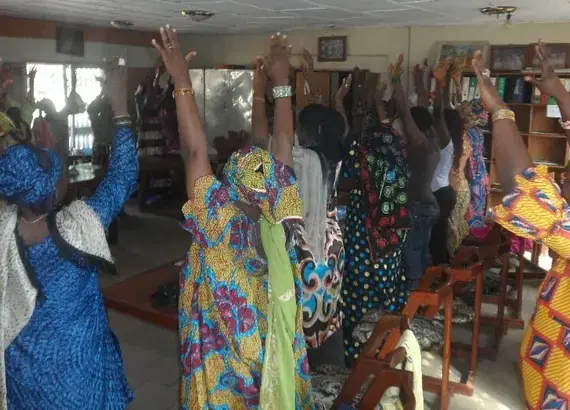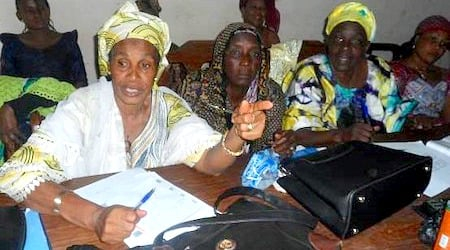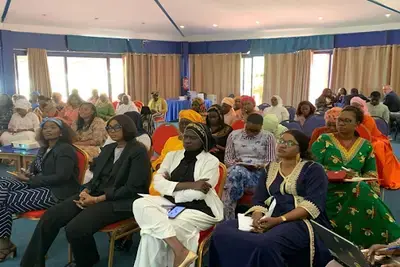
Success Story
NDI Supports Guinean Women in Exercising Political Rights
Guinean women in local political parties and civil society organizations (CSOs) are frustrated over the current state of women’s political inclusion in Guinea: “We are tired of singing and dancing,” said Mama Kouyate of the ruling Rally of the Guinea People (Rassemblement du Peuple Guineen - RPG Arc en Ciel) during a recent advocacy workshop organized by NDI.
Although women play a major role in Guinea’s local economies, they lack proportionate political representation and adequate formal, political input in the decision-making processes of their communities. Guinea’s political parties have few processes for inclusive policy platform development and for transparent candidate and leadership selection. While Guinean law mandates a 30 percent quota for women on political party candidate lists, there is no punishment if parties fail to meet it. Even when the quota is respected, women are often placed low on their party’s list, making their election less likely.
“We deserve better, and to improve this situation we have to make ourselves understood by sending clear messages and continuing to fight to fully enjoy our political rights.”
Participation of women candidates in local elections is a crucial step towards more inclusive political decision-making processes in Guinea. To this end, from December 7 to 15, NDI organized a series of two-day workshops in each of Guinea’s seven regional capitals to train women members of local political parties and civil society organizations (CSOs) on how to conduct advocacy campaigns targeting political parties. The trainings aimed to promote greater respect for the candidate list gender quota and greater representation for women in Guinea’s local elections. Participants included 213 women from 22 political parties and 59 CSOs. Both print and radio media covered the workshops.

Group work in the Labe regional workshop, December 2016.
The trainings provided participants with the tools necessary to create and implement advocacy action plans and outlined the legal principles surrounding the organisation of communal and local elections in Guinea. Once NDI facilitators outlined these legal principles, the workshops provided a forum for participants to discuss women’s political representation and advocacy efforts through the lens of their individual and collective knowledge, and regional experience. Presentations, question and answer sessions, group work, brainstorming and role-playing supplemented participants’ discussions.
By the end of the trainings, participants had established advocacy committees in each of the seven regions, created advocacy action plans and drafted specific advocacy messages. The women were eager to put their training into action: “I would like to promise that if my party’s list is ahead after the next local elections, I will be the next Vice-Mayor of the urban district of Mamou,” asserted Fatoumata Diaraye Barry after the workshop in Mamou. The success of the workshops resulted in part from a successful collaboration between NDI, local CSOs, and prefectural and regional administrative authorities. Most regional governors attended their local workshop and expressed their support for the initiative.
Although the government announced in December that the local elections scheduled for February 2017 will be pushed back to an undetermined date, NDI will continue to support Guinean women as they seek to fully exercise their political and civil rights.
These workshops were conducted as part of a program supported by the United States Agency for International Development (USAID) and the United Nations Development Programme (UNDP).
Published on January 6, 2017



